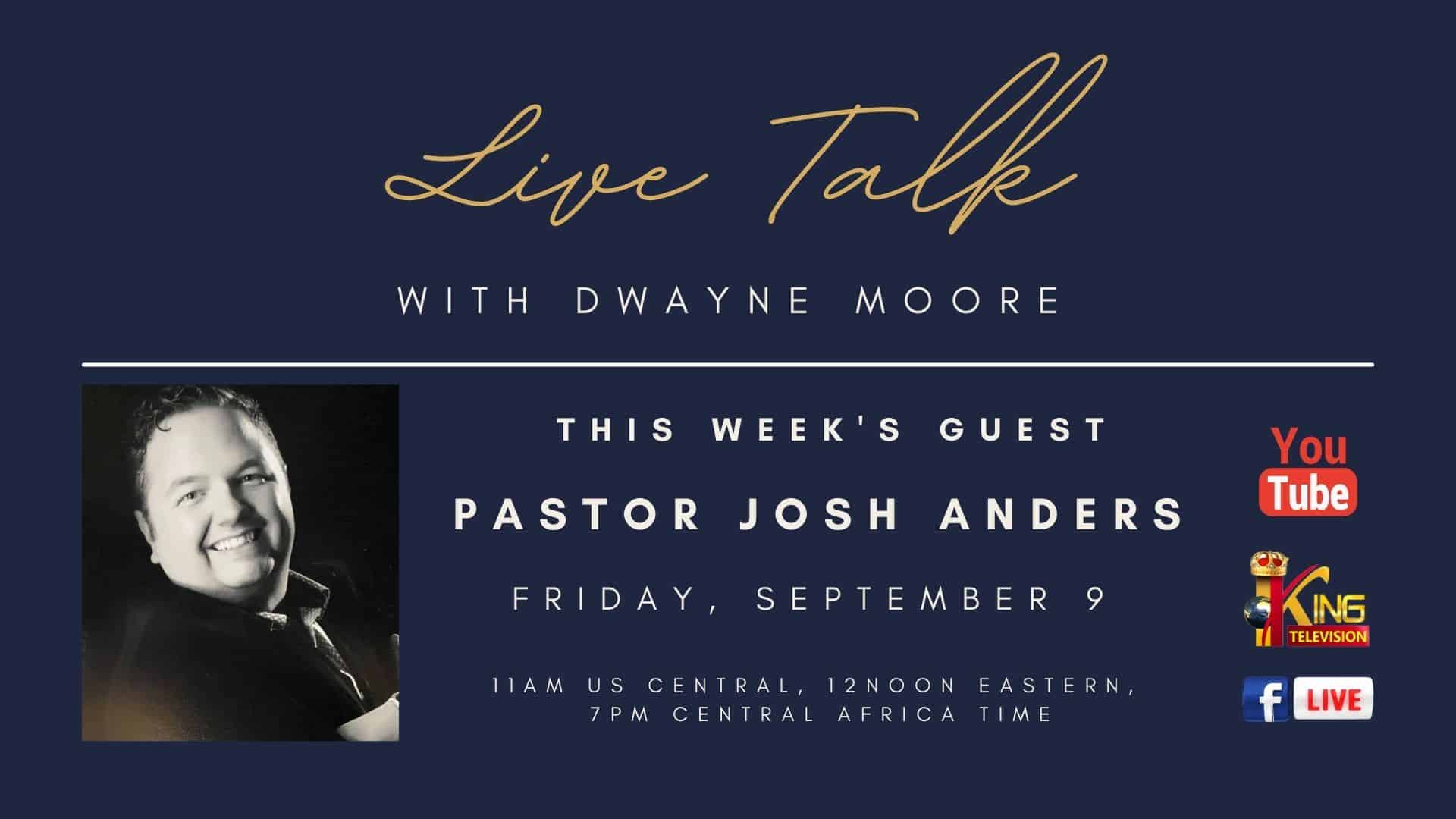
Prayer and Worship
By Dwayne Moore
I have a friend named Donald who is a pastor. He lives in Zambia, a beautiful country in south-central Africa that’s slightly larger than the state of Texas. Donald has a heart for God that’s also larger than Texas. I’ve had the opportunity to coach Donald and have him on our international ministry team for several years. One of my favorite things is hearing Donald pray. Trust me when I say, if you’re having a bad day, you want Donald to pray with you. I promise you will be encouraged and fired up by the time he says amen! Somehow Donald always manages to turn his prayers to praise.
That’s how it should be when we pray. Prayer, after all, is communion with God. And the more we commune with this awesome and loving Father of ours the more it should warm our hearts to worship him.
<> I want you to try something now. You’ve been practicing the Lord’s Prayer some this week, so I want you to quote it aloud. As you do, think carefully about what you’re saying. Savor every word, and be sure you speak to God as you quote the prayer. Imagine him bending over you and listening as you pray to him. Stay focused and intense all the way to the final amen. See if you sense a stir building in your heart as you go through the prayer.
So, how was it? Did you sense a stirring inside you when you recited the prayer? The way the Lord’s Prayer lifts our thoughts and hearts toward the Father, the way it places our burdens before him, and the uncanny way it climaxes with exuberant adoration and a rousing amen—everything about this amazing model of prayer expresses our complete dependence and trust in God. One can’t pray the Lord’s Prayer in earnest without realizing God is God and we are not. And that ultimately sums up what true worship is—acknowledging and submitting to the one, true Lord.
<> Please read Psalm 55 now. Notice how David’s prayer gradually turned to praise. Highlight each reference that could be considered an expression of worship and an acknowledgment of who God is.
From the Heart
The word worship comes from an old English word that means “worth-ship.” Worship in its simplest form is giving worth to something–something we believe is worthy to have all our attention and affection. We give worth to God when we love him with our whole heart, mind, soul and strength.
Worship in the Bible is both acts of obedience and an attitude of love for God and others. For example, praying the Lord’s Prayer can be an act of worship, but only if we mean the words to the prayer. True worship must flow from our hearts that are pure before him. When we love him we will want to obey him and do things that please him.
Paul said, “So, whether you eat or drink, or whatever you do, do all to the glory of God” (1 Corinthians 10:31). Worship is much more than singing or going to church. Worship should be our way of life. From things as common as eating and drinking, to sharing our faith with others and showing love to the unlovable—everything we do can qualify as worship when they flow from our hearts that love and honor God above all.
Some might wonder why all this talk about worship in a study on the Lord’s Prayer. That’s simple. It’s because the Lord’s Prayer is, as Dr. John Macarthur explains it, “primarily an expression of worship…Prayer is the highest form of worship that an individual can participate in.”1
Could it be that Jesus knew praying this prayer as a habit in our lives could help form in us a heart of worship? Think about it. What better way to live out the challenging instructions Jesus gave us in the Sermon on the Mount than as a true worshiper of God?
Consider these examples from Jesus’ sermon in Matthew chapters 5-7…
- Jesus said, “Blessed are the meek,” and those who hunger for righteousness, and the merciful, and the pure in heart, and the peacemakers. Each of these qualities is a matter of the heart.
- Jesus said, “Rejoice and be glad” when we’re persecuted because of him. However, we can’t be glad on the outside if we’re not glad on the inside. We can’t fake joy; either it’s in our hearts or it’s not.
- Jesus said, “Let your light shine.” For us to want to let our light shine before others, we need a genuine burden for them. And where do such burdens of love and concern reside? In our hearts.
- Jesus said our righteousness should exceed “that of the scribes and Pharisees.” According to Strong’s Concordance, the righteousness Jesus referred to is “integrity, virtue, purity of life, uprightness, and correctness in thinking, feeling, and acting.”2 None of those things are possible if our hearts aren’t right with God and committed to him.
- Jesus said we are not to kill or commit adultery, and then he pointed out that those things take place first in the heart.
- Jesus said we should lay up treasures in heaven, “for where your treasure is, there your heart will be also.”
By these examples it’s clear the Lord is concerned about the state of our hearts. To reiterate, I believe one of the main reasons Jesus told his disciples to “pray like this” was to help form in them and in us a heart that loves and follows God.
To help drive home the idea that prayer should flow from a heart of worship, I want us to consider something Jesus said in Matthew 15. In this passage Jesus was rebuking the Pharisees for their hypocrisy regarding their traditions versus God’s laws.
<> Please read the first 11 verses of Matthew 15 now. Especially notice what Jesus said about their hearts and their worship in verses 8 and 9.
Jesus called the Pharisees’ worship “a farce” because it didn’t come from hearts sold out to God. Their worship wasn’t real. In essence he was saying what comes from our lips should flow from our hearts of worship. That should of course include prayer. Prayer from a worshiping heart is the kind of prayer God is sure to hear and answer.
In Matthew 15:8-9 Jesus was quoting the prophet Isaiah. Here’s something else Isaiah said:
“Behold, the LORD’s hand is not shortened, that it cannot save, or his ear dull, that it cannot hear; but your iniquities have made a separation between you and your God, and your sins have hidden his face from you so that he does not hear” (Isaiah 59:1-2).
Did you catch that last line? That’s some bold talk, but it’s a truth we need to hear and heed. God will not listen if we harbor sin in our hearts. Unconfessed sin causes our hearts to be far from him. We need to confess and forsake our sins, knowing he is faithful and just to forgive us. Because of his awesome mercy, we can “go right into the presence of God with sincere hearts fully trusting him. For our guilty consciences have been sprinkled with Christ’s blood to make us clean…” (Hebrews 10:22a NLT).
Common Ground
Can we worship without praying? Technically yes. Can we pray without worshiping? Again, yes…but not for long. One will always lead to the other. If we pray it will lead us to worship. If we worship it will most certainly lead us to pray. This is because authentic worship and prayer have something vitally important in common: They both flow from hearts that commune with God. It is a heart of communion and a desire to fellowship with God which drives us to our knees, draws us to the cross and causes us to want to yield our lives to him every day.
When the wise men came to Jesus he was probably a small child, maybe 2 or 3 years of age. We’re not told for sure, but I find it hard to imagine them not addressing him directly at some point while they were there. I believe it’s likely they verbally spoke to him. Here’s what we know for sure:
“And going into the house, they saw the child with Mary his mother, and they fell down and worshiped him. they presented him with gifts of gold, frankincense and myrrh. Then, opening their treasures, they offered him gifts, gold and frankincense and myrrh” (Matthew 2:11).
What a privilege those men had. No wonder they rejoiced with exceeding great joy when they saw the star. They knew they were about to commune with God himself! They got to communicate with Jesus one on one. They worshipped him, and in a real sense they prayed to him.
From what we’ve studied today, I hope you can see how we cannot separate worship and prayer. They always go hand in hand. And the Lord’s Prayer, if prayed as a habit each day and as a pattern, will help form in us a heart that loves and glorifies God—not just with our lips but also with our lives.

1 Comment
Leave a Reply
You must be logged in to post a comment.





James
I am blessed by the sermon